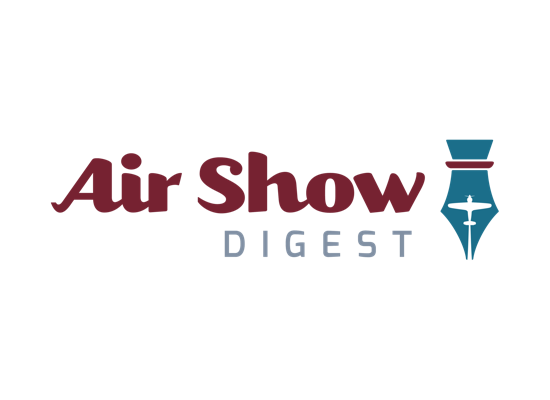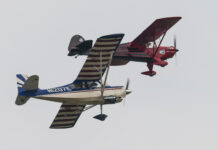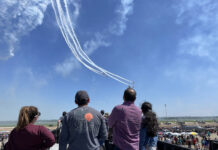“Some people out there simply shouldn’t be in this business. They hurt the air show industry by cutting corners. We’ve got a big future ahead of us. We just need to stay safe and be professional.”
These comments by jet truck performer Neal Darnell reflect a growing perception that the air show industry can no longer simply deliver quality entertainment. Both as individuals and as a community, we must aspire to something much more with an industry-wide commitment to precision, dependability and professionalism. The bright future of the air show industry depends on it.
“Good Enough” No Longer Good Enough
At this point in the development of the air show business, “good enough” is tantamount to negligence. Increasingly, the most savvy and thoughtful performers and support service providers are distinguishing themselves not simply with lower fees, but with a higher quality of service.
“For most air shows, the quality of their event will be determined in large part by the professionalism, commitment and talents of the performers and vendors that they invite to their air show,” says ICAS President John Cudahy. “The simplest and most straightforward way for these shows to improve is to be more careful and deliberate about the people that they hire.”
Air bosses, show producers and industry decision-makers are hiring cream-of-the-crop professionals who demonstrate both painstaking attention to details and “more than five hours of daily non-stop thrills, chills and jaw-dropping excitement,” as Darcy Brewer, Executive Director of the California Capital Air Show aptly puts it. And they’re avoiding prima donnas, difficult personalities, the chronically tardy, and the frequently inebriated.
“I’ve helped lead a seminar on how NOT to be invited back to an air show,” Darnell shares, making it clear that there are any number of tried-and-true methods for performers to make themselves unattractive to prospective air show event organizers. “I hope no air show performer thinks they’re a rock star and makes unreasonable demands. Don’t show up late in the week, at the last minute. Remember that your media appearance is just as important as your act. Don’t breeze in just in time for the briefing on practice day. Recognize that air show producers have a lot going on and that you’re just a small part of it all. Show up on time and do what you’re supposed to do without being a pain in the rear.”
Darnell’s success gives his opinions weight. He will perform at 24 air shows this season, and is partnering this year with John Klatt Airshows for the Air National Guard-sponsored 2011 “Max Adrenaline” Tour. Darnell has been involved in the air show business nearly 10 years, after more than 20 years in the motorsport promotion business as the producer of 400 major events.
Another red flag? The absence of ICAS membership. “If a pilot or vendor is not a member of ICAS, there may be a reason for that,” warns Cudahy. “It doesn’t happen frequently, but air show performers have been removed or suspended from ICAS membership in the past.”
Insurance professionals like Susan Amey point to additional concerns. “One item that always raises a red flag is when the performer is reluctant to provide a certificate of insurance showing that they have coverage to fly or perform at air shows, and to name the event and airport as ‘additional insureds.’” This applies to everyone participating in the event, including vendors. Additionally, Amey recommends that all no contract should be signed without first being examined by an attorney or representative from an insurance company.
Thunder in the Valley Air Show in Columbus, Georgia, requires insurance with additional coverage from all performers, entertainers, statics and vendors. They also require a W-9 on all participants. According to Phaedra Childers, Event Coordinator for Thunder in the Valley, “This creates another layer of professionalism and accountability.”
Your Reputation Precedes You
Those who do the hiring know your reputation before they know you. When considering adding a performer new to their show, organizers ask the opinions of trusted professionals. References matter.
“If we don’t have firsthand experience with a performer, we may get references from a variety of sources such as another show, a performer or individuals who have worked at a show where the performer has appeared,” says Brenda Kerfoot, General Manager of Vectren Dayton Air Show in Ohio.
If somebody’s got a bad reputation, it’s generally a well-known fact in the air show community, says Rick Grissom of Aerial Entertainment Resources of Kissimmee, Florida, who has produced air shows for 40 years. He talks to other shows to find out how performers interact with sponsors and fans. “It’s not just, ‘Do they know how to fly?’ If I really want to know about somebody — how are they to work with, will they hurt anybody, including themselves — I talk to other performers I trust, like Mike Goulian, C.C. Gerner or Sean Tucker. If they can stand by a fellow performer and attest that they are safe, that’s the most important thing.”
“Our show is in its 14th year,” says Childers. “We know many of the performers and other entertainers from experience. When possible, our air show committee travels to other air shows to meet [performers that are new to us] before signing a contract. We interview other shows, our air boss and announcer, and we look at photographs and videos of their performances.”
You Can Fly, but You Cannot Hide
Remember, it’s difficult to hide a lousy reputation in the air show industry. “We are members of ICAS and we have found that sour news travels fast within our association,” Childers adds. “We organizers talk to each other. We compare our acts and statics with each other.”
Cudahy agrees. “The air show business is small and well-connected. It only makes sense to take a few extra minutes to check in with other event organizers that have hired this individual or organization in the past to make sure that you’re getting what you think you’re getting.”
Organizers know the personalities of most performers, says George Cline of Air Boss Inc. of Greensboro, North Carolina, who has 25 years of experience as an air show air boss. “The constant complaining about little problems will follow a performer and be known to all concerned parties. Promoters talk. Narrators talk. And air bosses talk. It’s a small community.”
Taking a Chance on the New Performer
Hiring a newbie has its risks. On the one hand, the air show community needs new blood and innovation. But no air show wants to be the guinea pig for a performer who turns out to be ill-behaved, boring or dangerous.
Again, for most event organizers, the answer lies with the counsel of many.
“We are willing to take a risk on a new or unknown performer only when they come with a strong recommendation from someone very reputable in the business,” Kerfoot explains. “For instance, if Sean Tucker tells me he has someone he feels is ready to fly in our show and asks if we would give them time in the schedule, we believe that individual is ready for our show.”
“The only person I hired sight-unseen was Sean Tucker in the early ‘90s, because Gene Soucy, Charlie Hillard and Tom Poberezny all recommended him,” recalls Grissom. “Those three rarely ever agreed on anything, so I knew they must be right if they all agreed on Sean Tucker!”
The Local Performer: To Hire or Not to Hire?
The formula for hiring performers typically includes ensuring that producers stay within their budget while hosting a strong, entertaining and well-balanced show with new elements to keep the line-up fresh from year to year. Some shows go out of their way to ensure that they hire a local performer, to appeal to the hometown crowd. But this practice can put the show in a precarious position.
“I’m scared like poison of performers flying for their hometown crowd,” says Grissom. “That’s just asking for an accident to happen. I don’t do hometown acts. They typically haven’t flown many shows, they want to impress their friends and neighbors, and they’re willing to take risks that they otherwise wouldn’t take. In my contract, I have a clause that allows me to refuse anyone to fly that I deem is unsafe.”
“Hiring someone that’s an ICAS member is one of the best ways to get references as well as background information, rather than hiring a local person [who is not actively involved as an air show performer], whose training or discipline may be difficult to verify,” Amey says.
Taking Risks vs. Playing it Safe
As they consider potential acts, most veteran event organizers make the same assessments: Is this individual a professional who will come in and do a good job without causing trouble or is he a malcontent who will create or exacerbate problems at the worst possible time? Does the entertainment value correspond to the cost of the act? Organizers are looking for quality entertainment, good value, reliability, and the lowest possible chance of drama or distractions.
First things first. After Grissom is assured that a performer is safe, he looks at their overall entertainment value. Is this somebody who gets along with the fans and sponsors, and represents themselves and the show in a positive manner? “They’ll be on the ground longer than they’re in the air, so I want them giving out autographs and being pleasant to everyone,” Grissom says. “If they do all that, they’re the true star of the show.”
“We have taken marketing and budgetary risks to introduce new ideas, but the risks were never issues of safety,” Brewer says. “Although we would consider a new act, we won’t fly a wild card. We hire performers that share our vision, and are professional, safe and fun.”
Performer Fees: Not the Deciding Factor
Performer fees are likely the most controversial topic in the air show community today. Indeed, this issue of Air Shows Magazine has an entire article devoted exclusively to this topic (see page xx). But, amidst all the controversy and disagreement, there is common consensus among industry veterans on at least two issues. First, fees should not be the most important determining factor in hiring a performer. And, second, there’s really no such thing as a free act.
“Just because the price is right doesn’t mean the act is right,” is Grissom’s perspective. “The last thing you should consider is cost, and that’s only after everything else is even. Besides, is any performer really free? There’s no such thing as a free act.”
Cline adds, “If the show is pre-planned and the performers are based on the type of show you want, it doesn’t matter if they are free or sponsored or less spectacular… All performers are not created equally and may offer different aspects to your show.”
But there is broad and deep disagreement on whether or not price is, in fact, an important consideration when air shows hire performers and vendors. In multiple different surveys conducted during the last several years, event organizers have steadfastly maintained that price is one of just three or four different considerations the look at when hiring. Overwhelmingly, however, performers believe that it is, by far, the single most important issue that event organizers consider when hiring.
Identifying the Pros
True professionals demonstrate certain qualities that show organizers value most highly, because they enhance the reputation of their events and make life easier for all involved. Oftentimes, the selection of one performer over another is due to overall attitude rather than aerial performance.
First impressions are vitally important. According to Kerfoot, “You can get a good feel for someone while in discussions before you sign a contract. Do they return your calls in a prompt manner? Can they provide good publicity material, references and a contract for review? Do they have a professional website?”
Brewer looks for a team player. “When a choice arises and we must decide between two options, the choice will go to the enthusiastic professional with a great attitude,” she says.
Cline expects the performer to be on time and interact with the crowd. “Performers are paid well to be where they are needed as long as the schedule has been discussed with — and approved by — the performer. They should also attend the performer party to meet other performers and sponsors, to grip-and-grin for at least one hour. Not to show up is rude and insulting. Everyone should make an appearance. “
“We see ourselves as a professional organization producing a high-quality, entertaining air show,” says Kerfoot. “So we want performers that are professional (dependable; able to deal with the media, sponsors and spectators; and provide safe, top-notch entertainment). Media and VIP rides are a very important part of our show production and can sway us between two similar performers.”
Here’s how to get invited back, says Darnell: “Be dependable. Look good. Make sure your equipment runs well. Be on time. Keep a low profile. Don’t be too demanding. Be the guy that helps to solve or avoid problems, not the guy causing them or making them worse. Let the show know what you need well in advance (rental vehicles, rooms, etc). Get there on a Tuesday or Wednesday rather than a Friday, but don’t show up early and unannounced. Get familiar with the ramp layout. Make yourself available for interviews.”
Cudahy has been at the receiving end of complaints from event organizers about performers for nearly 15 years. “Air show weekend is a bad time for drama. Problems periodically come up, and event organizers expect performers to help solve those problems, not exacerbate them,” he says. “And that’s especially true of problems that come up on Thursday, Friday and Saturday during air show weekend. If you get a reputation for being ‘that guy,’ you will start to hear things like, ‘Our budget just won’t accommodate you this year’ or ‘Gee, I really wish I’d heard from you earlier.’”
Does ICAS Membership Matter?
Hiring an ICAS member provides a long list of dependable references, plus a level of accountability by all parties involved. “If, for some reason, an agreement is not met or there is a misunderstanding, the ICAS fraternity happily assists in adding clarity, a solution or compromise,” says Brewer.
It’s all very straightforward for Cline: “By hiring ICAS members, you know what you’re getting and you’re able to check their qualifications on the ICAS website. You’re also able to ask other member aerobatic pilots about their knowledge of the performer.”
Cudahy admits to being less than completely objective, but says, “I strongly believe that it’s in the air show community’s collective interests to only hire ICAS members to perform at or provide other services for air shows. In addition to demonstrating that they’re committed to the business, ICAS members become part of our professional network, our industry communications loop. That should be any show’s minimal expectation of the performers and vendors they hire to work their show.”
On the other hand, Cudahy believes that performers who opt to not join ICAS are sending a message that they choose to remain outside the air show community. “From my perspective, that should be a source of concern for event organizers thinking about hiring those performers.”
Final Pass…
“We hire proven professionals and let them do their jobs. If a performer has a reputation for unprofessional behavior, chances are they will never make our short list – regardless of the act they provide,” says Brewer. “It’s not worth the trouble when there are so many wonderful ICAS members to work with.”








